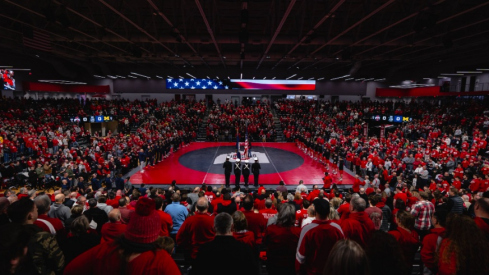The Big Ten's decision to move towards a spring college football season puts us in uncharted territory with plenty of lingering questions. Let's take a look at a few.
Will Other Conferences Follow Suit?
The Big Ten was the first of the Power Five conferences to cancel its fall season with the Pac-12 following closely behind. That leaves the ACC, Big 12 and SEC with decisions to make in the coming days and weeks.
As of the Big Ten and PAC-12's announcements, the other three Power Five conferences seemed intent on moving forward with a fall season, but that could certainly change before it comes time to suit up.
What Does the Schedule Look Like?
This is completely uncharted territory, meaning even the most basic questions need to be answered.
We don't know when the season would begin – be it late winter or early spring. We also don't know how many games there would be, where the games would be played, or any matchups.
Then there comes the issue of practices – we have no idea what a practice or camp schedule will look like. Will teams be allowed to practice in the fall, or will there be a hiatus on practices until later in the winter?
Finally, we're going to have to see how all of this affects the schedule for next year. As Urban Meyer continues to point out, playing two full seasons in the same calendar year is a lot to ask of players from a safety standpoint. Will we see next season's fall schedule delayed as a result of this year's spring schedule?
Which Players Will Leave Early or Transfer?
Long before this happened, we knew that moving the season to the spring would almost certainly result in draft-eligible players leaving and opting out of a spring season, the next question is just how many players that will be.
Shaun Wade's parents already made it clear that he would not return to Ohio State for a spring season, and many upcoming draft picks – Justin Fields, Wyatt Davis, Chris Olave, etc. – may follow suit.
An assistant coach on what spring FB would do to the rosters: Ryan Day has 12 who will be drafted and another 13 who think they will be drafted.
— Teddy Greenstein (@TeddyGreenstein) August 11, 2020
It's worth noting that this is all contingent on the NFL sticking with its current league calendar. If the NFL adjusts its schedule, as we'll discuss later, that could mean fewer players opting out of a spring season.
Perhaps the even bigger question, though, would be potential transfers.
If other conferences decide to go forward with a fall football season, would we see players attempt to leave Big Ten programs to play a fall season elsewhere? Would they be granted immediate eligibility?
Even if they don't receive immediate eligibility, there's a chance players would simply be uncomfortable playing a spring season followed by a full regular season the following fall just eight months later, as Bleacher Report's Matt Miller suggests.
So much is wrong with this. If the Big 10 cared about player safety they wouldn't ask them to play back-to-back seasons within 8 months.
— Matt Miller (@nfldraftscout) August 11, 2020
If I'm a top-tier Big 10 player, I'm transfering immediately.
Ryan Day said he doesn't expect this to be an issue, but he also acknowledged that he does expect teams to try to poach Ohio State players.
Will the NFL alter its schedule?
One of the biggest determinants of players potentially leaving could be the NFL's league schedule.
Currently, the NFL scouting combine is scheduled for February with the draft slated for April. Previously, the NFL was reportedly uninterested in altering its league schedule for a spring college football season, but it seems that could be changing.
From @GMFB: If the bulk of college football is delayed until the Spring, the NFL offseason calendar would change dramatically. More here pic.twitter.com/Tp2GOUOqbP
— Ian Rapoport (@RapSheet) August 12, 2020
Ian Rapoport reports that the NFL is already discussing moving the league schedule back to accommodate a spring college football season, with the NFL combine potentially shifted back to April or May and the draft taking place in early June.
Obviously, if the schedule is not altered, very few potential draft picks would play a spring season as they prepare for the NFL Draft. If the league schedule is altered, however, we may see fewer players opting out of a spring season.
What happens to the College Football Playoff?
The College Football Playoff has already adjusted its schedule, pushing its decision day back a few weeks to accommodate for later conference championship games. But now with the potential of a spring season, what happens to the playoff?
If most conferences move to the spring, it would make sense for the College Football Playoff to move to the spring as well. However, this situation would be made quite complicated if the Big 12, ACC and SEC continue forward with a fall season.
If some teams play in fall while some teams play in the spring, the reality would be that there will not be able to be a unified playoff, and the College Football Playoff will either have to choose a season, or cancel.
Who Will be Eligible to Play?
The answer to this seems obvious, but it could turn into quite a complex situation.
It seems fair to assume that current seniors in their final season of eligibility would be able to play a spring season since the fall season would be postponed, but that's not necessarily a given. Either way, Ryan Day would obviously want an answer to this as soon as possible.
Ryan Day said he wants answers really, really fast on how this will affect his players' eligibility if they don't get to play this year.
— Dan Hope (@Dan_Hope) August 12, 2020
The far more interesting question, however, could be whether incoming early-enrollee freshmen would be eligible to play – something Day made very clear he supports.
Allowing early enrollees to play could help bolster rosters that might be depleted by players opting out of the season to prepare for the NFL. If early enrollees are permitted to play, the next question would be if that spring season would count as a full season against their eligibility or if they could then play the fall season with all of their eligibility intact – Day is pushing for the latter.
This is only a sample of the many issues that will need to be addressed in the coming days, weeks and months if a spring season is going to come to fruition.
If a spring season does not happen, that would lead to a whole new series of questions regarding player eligibility, roster sizes and more.
But we'll just worry about one thing at a time.


